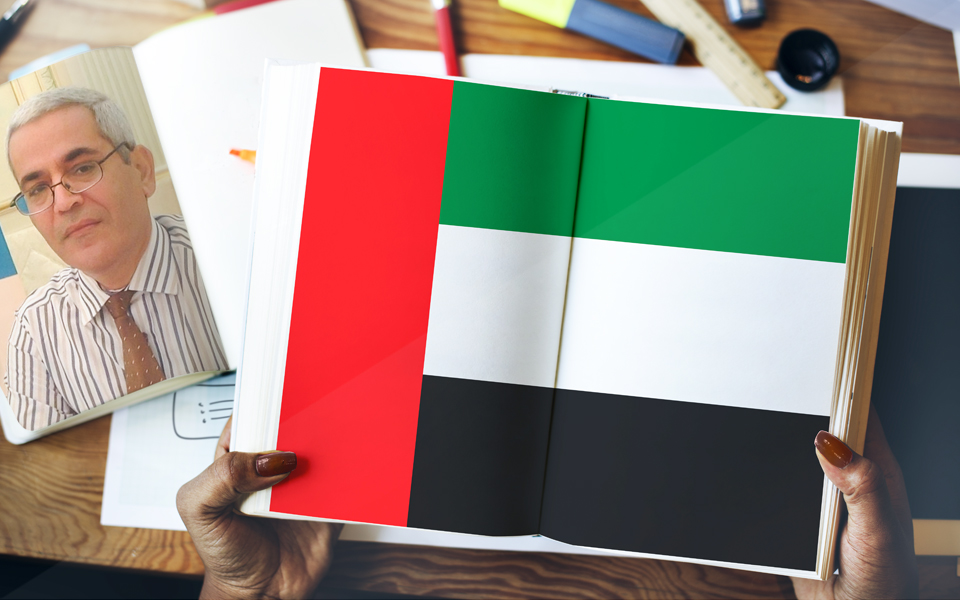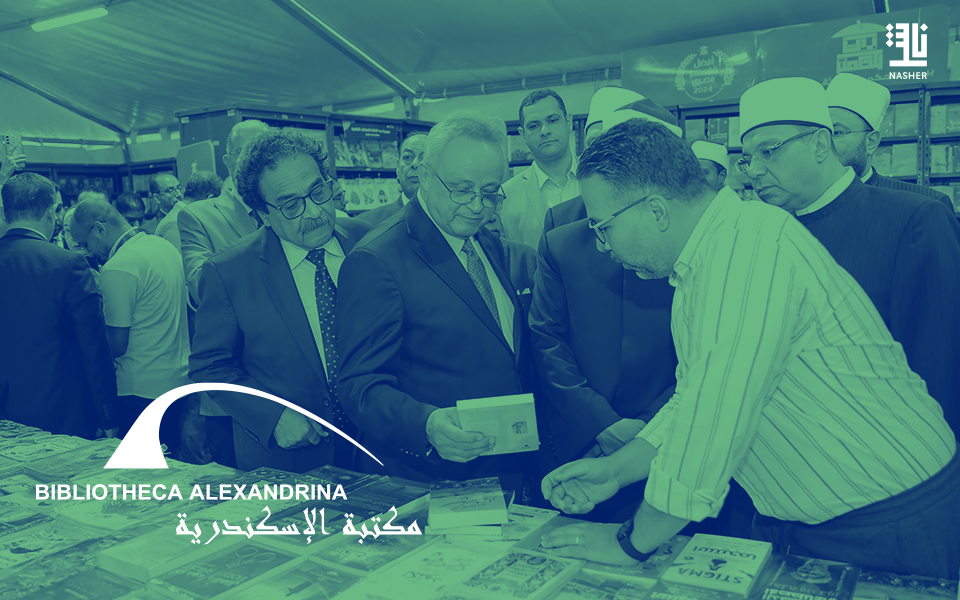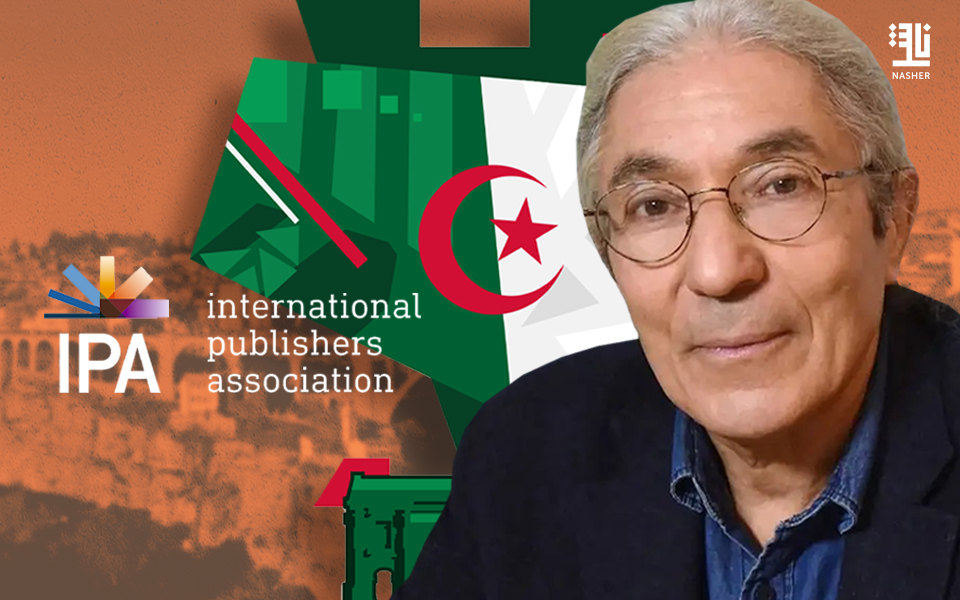By Jaffar Al Oqaili
Yousef Hattini believes that Emirati fiction has gone beyond the phase of formation and development to one that now sees it ‘building its own identity.’ The Palestinian literary critic says that the Emirati experience in fiction writing is now undergoing an impressive rise, with this period likely to be seen in future years as its ‘golden era.’
Hattini, who participated in a seminar held as part of the Cultural Programme of the 36th edition of the Sharjah International Book Fair, said that identifying the stature of the Emirati novel on the Arab narrative landscape requires examining its achievements in the less than half a century since the launch of the first Emirati novel Shahenda in 1971.
Hattini noted that the Emirati novel has evolved its own special language, drawing on its traditional culture, heritage and oral tales, while benefiting from other cultures around the world as a result of globalisation. This, he said, has enriched the Emirati novel with distinctive features, both in terms of subject and writing style, without compromising the dominant social traditions and traits of Emirati society.
Hattini talked about his book In the Shadow of Palm Trees, which was released by Sharjah Department of Culture and included criticism and analysis of 13 Emirati novels written by modern generation authors. In it, Hattini used critical tools and methodologies to try and understand the narrative style of the novels, analysing their characters, their social and spiritual dimensions and the language and writing style used. His aim was to reach conclusions that would allow for the further development of the Emirati novel.
Hattini examined how Emirati novels deal with time fiction books that included The Appeal of Places-Khazina by Mariam Al Ghafli, where the author builds a space-time structure that allows the recipient to access the past at the present time. Hattini also explored the narrative style in the novel Zena the Queen by Ali Abu Rish, whose narrative content witnessed transformations, particularly in terms of structure, narrative techniques and language level.
The critic also examined the details of spatial construct in the novel The Road of Seducers Women by Suaad Al Oraimi, who succeeded in taking readers on a journey into the beautiful world of narration. In his search of the construct of light and darkness, Hattini examined the two elements in the novel Ambushes of Darkness by Fatima Al Mazroui.
In his attempt to examine characters in Emirati fiction, Hattini analysed the novel Salayem by Ali Abu Rish, in which the character is transformed into a model who enjoys a range of physical and psychological qualities. He finds that the author proved his ability to transcend himself by developing a new narrative style.
Hattini allocated a part of his book to examine how Emirati fiction deals with the story by providing two readings; the first showing how the narrator adopts parallel ways of storytelling, as is in the novel Journey of Ibn Al Kharraz by Kareem Matouq, the second revealing how Emirati novelists use the small details of storytelling, as manifested in the fiction works by author Fathia Al Nimr.
Hattini also focussed on the narrative language that has taken a social dimension in the novel Toee Bakhita by Mariam Al Ghafli and in the novel Acute Angle by Fatima Al Mazroui. He examined the manifestations of Emirati collective memory and social traditions dominating the UAE society, as well as the language used, in the romantic novel Princes of the Mountain by Ali Al Humairi. Hattini also explored the polar dimension in the novel Perhaps You by Basima Younis and discussed the ideological aspect in the novel New Saves by Yasser Hareb.
Hattini believes that accumulation of events in the novel doesn’t necessarily make a creative work, but it generates an artistic or objective phenomenon that belongs to the history of literature. He says that what makes an excellent novel is the uniqueness of its writer.
Hattini considers the art of the novel has already transcended the phase of the conventional conformation, meaning that the writer is no longer required to create a balance between all the elements of narrative, but to comprehend what is required from them to overtake it. Accordingly, the outstanding novel that examines an aspect of the narrative becomes a true art project and a fiction writing doctrine to develop work out of fear of the traditional regulatory restrictions of the novel.
Hattini said that the writer who intensifies the elements of time in their work can build on and develop the experience of Saleha Ghabesh in her novel The Smell of Ginger in order not to begin with the strategies of conventional structure and fixed techniques. Ghabesh has benefited from the experiences of renowned novelists who shortened the real time used in narration as far as possible, such as Virginia Woolf in her novel Mrs Dolly, Jabra Ibrahim Jabra in his novel Screams in a Long Night and Ghassan Kanafani in his work All That’s Left For You.’ Hattini explains how Ghabesh relies on the real time that the hero spent in her bed, without surrendering to the theory of the novel and the phasing schedule.
Finally, Hattini stressed that what has been achieved in novel production since the release of Shahenda should be celebrated, with Emirati fiction having curved its way through a steady approach that bears its name and own imprint. He said that it has started looking for its own identity, in terms of modernisation and building unique characters, in the process distinguishing itself from other Arab fiction books.







